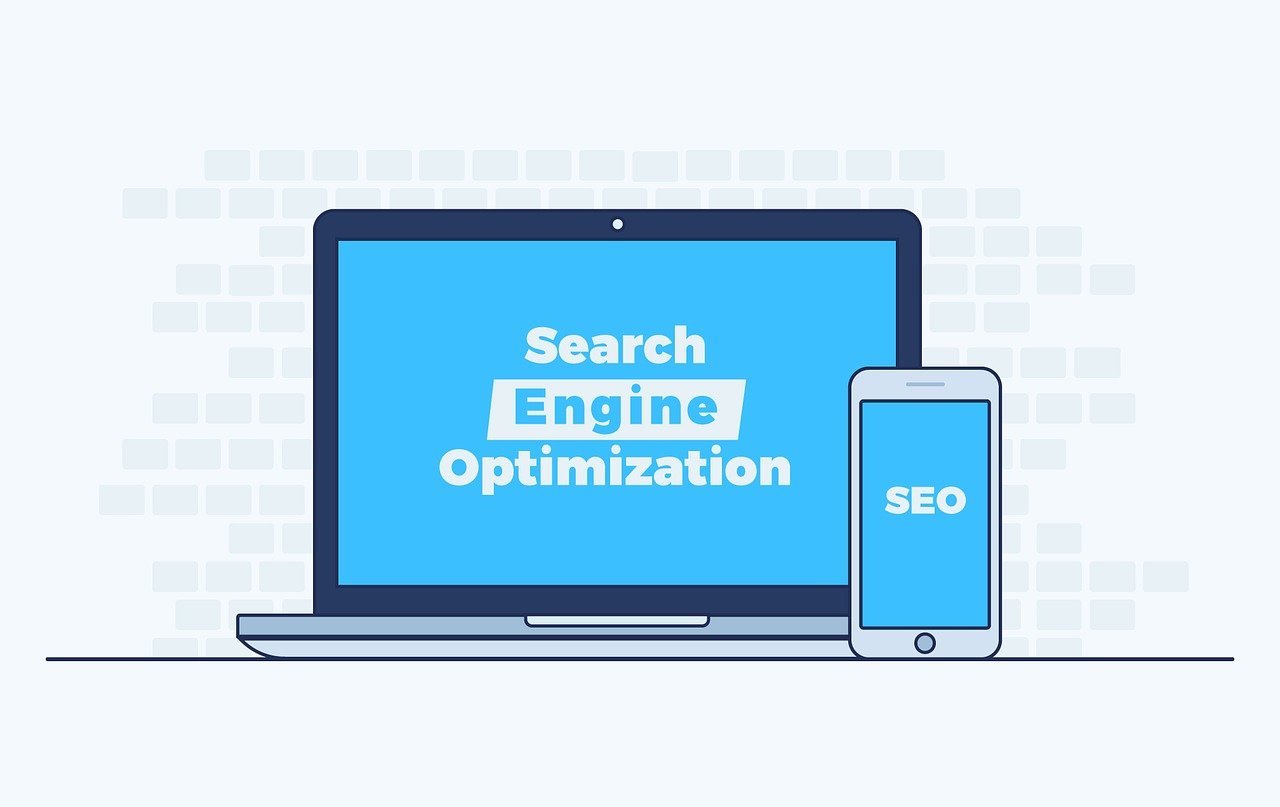Search engine optimization, SEO for short, is an incredibly effective and valuable form of marketing when done correctly. A clear majority of all customer journeys begin with a search on search engines, so of course you want to work to appear as high up in the search results as possible.
At the same time, SEO is a rather complex subject that covers a large number of areas. To be successful with SEO, you need to be aware of all the different components that together create a successful strategy.
A specific part of SEO is local keyword optimization. This form of SEO focuses on marketing at a local level and is particularly important for local businesses focusing on a physical area, be it a city, a municipality, or the like.
Local search engine optimization is simply the answer to the need to adapt online marketing to a specific geographic location. For small businesses, simply ranking high globally is no longer enough; it requires a presence at the local level to attract relevant customers.
The principles of local SEO are the same but special focus is placed on the geographical connection to be seen by the target group within a specific geographical area. In this article, we’ll take a closer look at local SEO and how you can implement it into your marketing strategy.
What is Local Search Engine Optimization?
Local search engine optimization (Local SEO) is a strategy within SEO where you optimize your online presence to appear better in local searches on search engines. This strategy focuses on improving the visibility of businesses that serve specific geographic areas and the goal is to appear high in search results when potential customers search for products or services in their vicinity.
The basic idea behind local SEO is to customize business information in a way that makes it easy for search engines to understand where the business is located and what areas it serves. This includes optimizing website content, using specific keywords and ensuring a consistent presence on platforms such as Google My Business.
How it differ from general SEO
The difference between local SEO and general SEO is mainly in the focus on geographic location. The SEO principles are the same as search engine algorithms rank websites in the same way but general SEO focuses more on increasing visibility globally or nationally, while local SEO is focused on being seen in specific local areas. General SEO is important for building a wider online presence and local SEO is specifically aimed at reaching a local target audience.
Local search engine optimization also includes managing reviews and ratings from local customers which has a significant impact on how the company is perceived online. In addition, it often includes locally targeted content and strategies tailored to the specific target audience and geographic area.
Local SEO doesn’t just mean adding the physical address to the company’s website. It is also about understanding and adapting to the local search behaviors and preferences of the target group. For example, instead of creating a page called “best running shoes” a local SEO optimization could mean creating a page called “Best running shoes for running around Lake Vänern”.
In other words, local SEO primarily involves focusing on one or more specific geographic areas in your SEO work.
Why Local Search Engine Optimization is Important
Local search engine optimization is of course particularly important for small and local businesses that strive to compete in an increasingly digitized market. With the help of local SEO, these businesses have a greater opportunity to be seen when nearby potential customers search for products or services online. An important advantage is that local SEO is very specific, which means that the competition is significantly lower than for broader search terms. This enables even small companies with less resources to stand out in the local market and compete against larger competitors.
Statistics clearly show the benefits of local search engine optimization. According to various studies, over 70% of users have used local searches to find businesses in their vicinity. Additionally, studies have found that over 50% of those who search for local businesses via mobile phone visit the store within a day.
It is quite simple why you as a local business should work with local SEO. When you optimize your page and work with the different parts of effective SEO, you increase the chances of ranking high and thus appearing better in the search results. This allows more potential customers to find your business when they search for related services or products in the geographic area.
Step-by-step Guide for Local Search Engine Optimization
Now that we have talked a little about local SEO and how it works, it is time to take a closer look at strategies and steps to succeed with local SEO.
As said before, all the principles that apply to SEO in general apply when working with local SEO. That being said, you shouldn’t neglect all the other components that are important to SEO when working with local SEO.
The first step is to do a thorough keyword analysis to identify the keywords and phrases most relevant to the local target audience. This includes specific geographic terms and expressions that potential customers in the area may use when searching for products or services. Google Keyword Planner is one of the most popular keyword tools, but of course there are others you can use to identify the most relevant keywords.
Optimization of company information on Google My Business
An incredibly important part of local search engine optimization is optimizing the company information on Google My Business. This includes adding correct address information, phone numbers, hours of operation, and a descriptive text about the business. You should ensure that this information is always updated with relevant information. It is also important to categorize the business correctly to help search engines understand its nature and connect it to relevant local searches.
Local search engine optimization on the website (on-page)
SEO can be divided into two main parts: On-page and off-page.
On-page are all changes and adjustments you make on the website itself.
When it comes to on-page SEO, there’s plenty to do but when it comes to local SEO specifically, you want to make sure to optimize your site’s on-page elements by including relevant keywords in meta descriptions, titles, and headlines. Make sure the website structure is user-friendly and easy to navigate. At this point, it goes without saying that your website is mobile-friendly as a majority of users search on search engines with their mobile. Remember to include your company’s physical address on your website’s footer and contact page.
Creation of locally oriented content
In order to rank for local search terms, it is fundamental to produce content and pages that focus on these search terms. This may include blog posts about local events, guides to exploring the area, or user-generated content from locals. For example, you can write articles and guides specifically designed for the region you focus on – while focusing on relevant search terms and areas within your industry.
Reviews and feedback from customers
Reviews on platforms such as Google and Yelp play a rather important role in a company’s reputation and its visibility in search results. Especially since Google My Business has such a prominent role in local search results.
That said, you want to encourage customers to leave positive reviews and respond professionally to negative feedback. When you regularly receive new reviews – and respond to them – you show Google that your business is up and running, which is a positive indicator of your business’s relevance.
Tools and Resources for Local Search Engine Optimization
A tip when working with local SEO is to use different tools and resources at your disposal. These can provide you with valuable insights allowing for improvements and adjustments to your strategy for even better results.
Google Analytics is a basic and widely used tool that provides detailed analysis of your website traffic as well as other important information about the geographic location and behavior of visitors. Google Search Console is another free and very good tool that gives you information about how your website is indexed. It can also provide you with information about any technical problems that negatively affect your search engine results.
Another tool that is good is Moz Local as you to manage your company’s presence on different platforms and ensure accurate data.
Common Mistakes and How to Avoid Them
SEO is quite a complex subject and there are many things to think about at the same time. For this reason, it is easy to make mistakes that can negatively affect your search engine results.
One of the most common mistakes is not keeping the information in your Google My Business profile updated with relevant and accurate information. This includes things such as address, opening hours or contact information. If these are incorrect, it can lead to confusion for both search engines and customers. Above all, it has a negative impact on the user experience, which is something that search engines attach enormous importance to.
Another common mistake is not managing your reviews properly – or not managing them at all. It is important to actively respond to your reviews to show search engines that your business is active. But above all, it is important to respond to negative reviews and respond to them in a good way. Keep in mind that users read reviews online and ignoring them or treating them poorly can send bad signals and discourage potential customers.
Since a clear majority of local searches occur with mobile phones, another mistake is also the lack of mobile adaptation of the website.
To avoid the most common mistakes in local search engine optimization, it is important to have an accurate and up-to-date Google My Business profile. This means regularly updating the company’s contact information, opening hours and other relevant details. Make sure to have an active and positive presence on review platforms and to respond professionally to feedback, both positive and negative. This is important to build and maintain a good online reputation.
Last but not least, you want to avoid over-optimization of keywords linked to your local SEO optimization. Your website and its content must be natural and relevant to users and should not be over-optimized with lots of keywords that have a negative effect on the user experience.








![76 Tips to Optimize your Website for SEO [Guide]](https://toppdomain.com/wp-content/uploads/2023/12/web-3967926_1280.jpg)